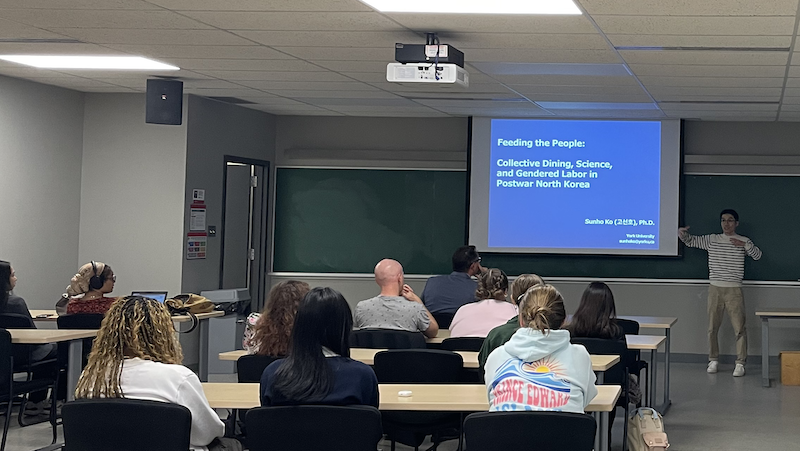Feeding the People (Speaker Series)
“In the 1950’s, noodles were the product of science” in North Korea, said Dr. Sunho Ko in his invited presentation last Friday night, and the ways in which food was produced and consumed in the country in the years during and after the Korean War has much to tell us about the history and development of North Korean society.

A professor in the Department of Languages, Literatures and Linguistics at York University, Dr. Ko specializes in the modern cultural history of Korea with particular attention to food, food production, and its impact on society, and in his talk he touched on many of these themes against a backdrop of original documents. Fading menus, black and white photographs, and statistical tables from North Korean government agencies introduced the audience to the realities of centrally-planned optimal nutrition initiatives, standardized cookbooks, and the cold noodle houses, collective catering facilities, and steamed rice factories of Cold War North Korea, not to mention the role of food as a political action:
“In our country, food catering serves the people. Therefore, food provisioning is organized entirely to meet the interests, preferences, and demands of the people…In capitalist restaurants, profit pursuit is the sole purpose, so they deceivingly sell harmful food to the people’s health. Under capitalism, food provisioning not only cannot become restaurants for the people but also becomes places of degradation and corruption.”
(상업독본, Manual of Commerce, 1959, 81)
Also discussed were the changing roles of men and women in an increasingly mechanistic society.
The talk was well-attended by students in Carleton’s Korean courses along with their instructors, faculty, and staff and a lively question and answer session followed.
“It was good to hear more about the North Korean food supply…We are learning about different food systems in my food sciences course…and I want to look more into [the North Korean situation] because it’s something I’m interested in.”
– Holy, a Biology student studying 4th year Korean
A huge message of appreciation to the team of Korean instructors who organized the event and to the 2024 Korean Studies Grant Program of the Academy of Korean Studies and the School of Linguistics & Language Studies for their generous support.